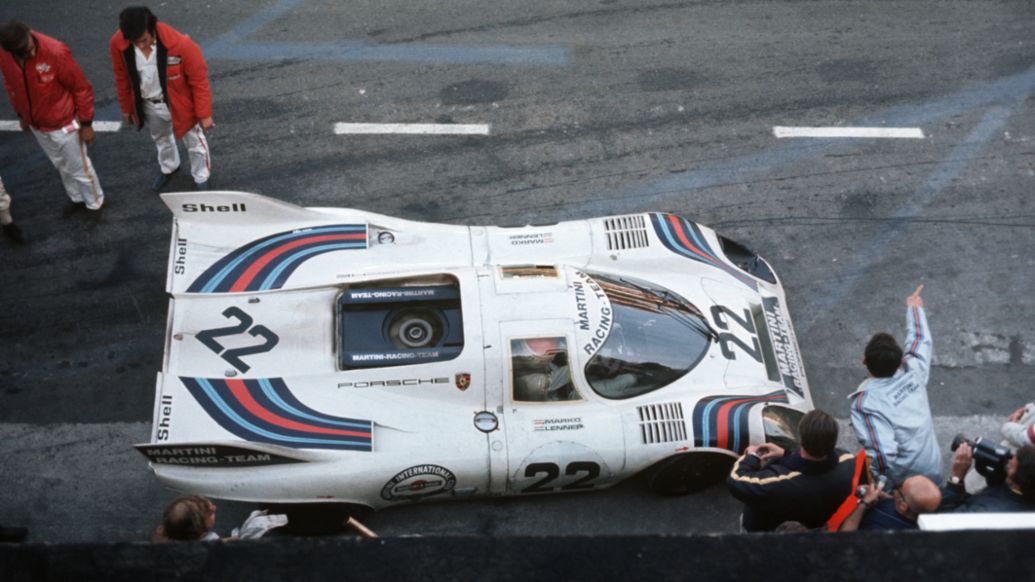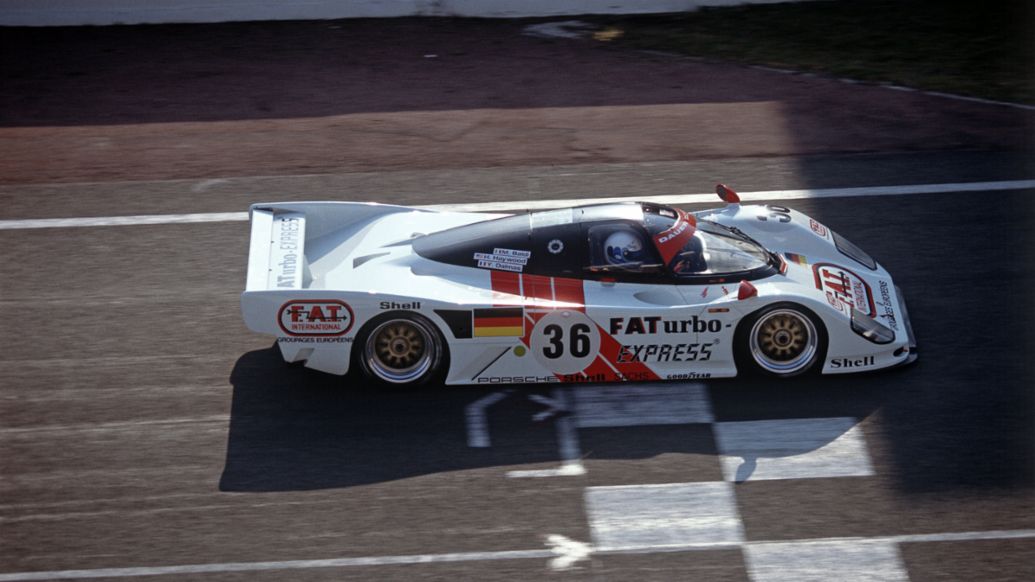Ever since Porsche participated in this endurance classic for the first time in 1951 and took an immediate class victory with the 356 SL, this race has become indispensable for the sports car manufacturer. But it was a long way to the first big triumph. Until the late 1960s, Porsche skilfully played the role of underdog and successfully concentrated on the smaller displacement classes. So Porsche initiated a change in strategy in the late 1960s. In 1969 Porsche was only 75 metres or a good second short of victory in the closest Le Mans finish in history. But already in the preparation phase for the 1970 race much of what had been learned in the years before was incorporated: Gerard Larrousse and Willy Kauhsen in the Martini Porsche 917 LH, followed by Rudi Lins and Helmut Marko in the Porsche 908/02 took second and third places respectively, making it a triumph for Porsche.

This first win set a precedent: One year later, 33 of the 49 starters were driving a sports and racing car made in Stuttgart-Zuffenhausen – a record which is still held today. A Porsche 917 KH also won the race in 1971. In 1974, Porsche heralded the turbo era at Le Mans with the launch of the 911 Carrera RSR 2.1 Turbo. Porsche recorded the first turbo victory in the history of the race with the 936 Spyder in 1976 with the same car winning again with the works team one year later in 1977. A customer team first entered the list of winners two years later. The success with the Porsche 935 K3 marked the first-ever victory of a rear-engine racing car at Le Mans – and a production-series racing car based on the Porsche 911.
Between 1981 and 1987, Porsche racing cars remained unbeatable at Le Mans. The longest winning run in the history of the 24 Hours began with the third and last victory of the Porsche 936 Spyder. In 1982, the works team launched the new type 956, taking all three places on the podium on its début at Le Mans. The 956 featured Porsche’s first aluminium monocoque chassis and innovative aerodynamics which allowed a powerful downforce without any noticeable increase in air resistance. In the 956 and its successor, the 962 C, the sports car manufacturer drove forward the development of electronic injection and ignition systems as well as today’s very popular Porsche dual-clutch transmission (PDK). From 1983 onwards, Porsche customers also started the race in the 956 and 962 C. Nine Porsche 956 cars featured in the top ten winning teams in 1983 followed by eight in 1984 and 1985 respectively.

The 1990s saw four overall victories by the works team and Porsche customers in three different types of racing car, starting in 1994 with the Porsche 962 Dauer Le Mans GT, developed in Weissach and based on the 962 C, followed by the TWR Porsche WSC Spyder developed by Porsche, in which a customer team won in 1996 and 1997. In 1998, the Porsche 911 GT1 `98 entered the race with the first carbon fibre monocoque designed by Porsche as well as the first carbon fibre brakes used by the works team – and won to coincide with the 50th anniversary of Porsche receiving an operating permit for the first sports car, the 356 “No. 1” Roadster.
Following this success, Porsche turned its attention in motorsport to developing close-to-production race versions of the Porsche 911 and its support of private teams. At Le Mans, this commitment was rewarded with eleven class victories between 1999 and 2018. 2014 saw the works team return to compete for the overall victory. Designed "from scratch" in Weissach, the Porsche 919 Hybrid featured unique technical solutions. Only the Porsche generated electric power for the high-performance battery by converting kinetic energy produced when braking and additionally by means of a turbine generator unit in the exhaust gas stream of a V4 turbo engine. The overall system comprising the electric motor and combustion engine delivered around 900 PS. This avant garde solution proved to be a success: from 2015 to 2017, Porsche scored a hat trick at Le Mans.
With 108 class wins and 19 overall victories under its belt, Porsche is the most successful manufacturer in the almost 100-year history of Le Mans. In 2020, Porsche continues the unique tradition of a Porsche sports car taking part in Le Mans every year since 1951: In the virtual 24 Hours of Le Mans, the newly created Porsche Esports Team will take to the start on June 13-14 with four Porsche 911 RSR cars (model year 2017). On the Twitter channel @PorscheRaces current information about the race is shared. A historical review of the 1970 race can be followed on the anniversary weekend on the Twitter channel @PorscheNewsroom.





No comments:
Post a Comment